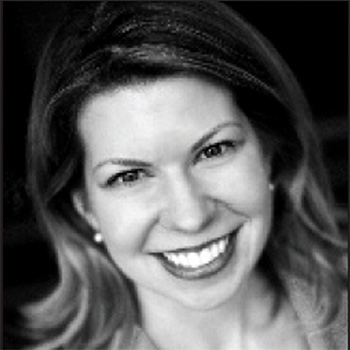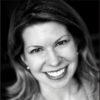Back to series



Clapham in the Congress
Click here to open a Print - Friendly PDF
| It is one of the hallmarks of evangelicalism that Christians are encouraged to give their personal testimony of how they individually came to Christ. But one milestone in my personal faith journey was of a more communal nature—the discovery of the way in which Christian community not only molds and grows our personal faith, but also our public and professional expression of that faith.
Growing up in an evangelical home, I was blessed from an early age to have been taught about God’s love, the reality of sin, the necessity for redemption, and the grace of salvation. The centrality of a personal relationship with God was both emphasized and modeled, and the fact that one’s faith should be clearly evident by one’s actions was stressed. However, the churches and Bible studies we attended made no mention of the more public aspects of one’s faith. “Living out one’s faith” generally meant sharing it. Divorced from the discussion were questions of justice, politics, and the public sphere in general. This tendency was even more pronounced in the campus ministry I joined as a college freshman. There, the focus on evangelism crowded out other aspects of discipleship, and there was a marked disinterest in pursuits outside of the “sacred” (defined then as the work of full-time Christian ministry). In fact, members of this organization were taught explicitly that “kingdom work” (defined as serving in the ministry or on the mission field) was God’s first choice for his followers; those who ignored that call could potentially redeem their less-than-ideal choice by using their office as a platform for evangelism and as a means of supporting those who had gone into full-time ministry. The idea that Christians could be called to, and fulfill God’s plan for their life, outside of “ministry” (narrowly defined) was more likely to be dismissed than discussed. Slowly, this view is changing. Most churches and parachurch organizations have begun to rethink ideas of vocation and calling. In addition, many churches have increasingly paid attention to the role of community in developing one’s Christian walk. But for me, my biggest object lesson in how a small, deliberate community can help one realize and fulfill one’s vocation and calling, and cultivate a Christian worldview within that calling, came not through any ministry or church, but through friendships forged while working in the U.S. Senate. Around a dozen years ago, I left the small think tank I was working at to join a fairly new Senator as his policy director. This Senator had wanted to shift many of his policy priorities from focusing on economics to developing a “cultural agenda,” and asked me to take the lead. It was an exciting assignment for a twenty-something, but also very obvious that little could be achieved without partnerships and allies, especially for someone so green in the field. I soon became part of a small, loose organization called “Faith and Law,” started as a ministry of the C.S. Lewis Institute in 1987, which met regularly to hear speakers talk about living the Christian life in the legislative arena. Soon after, a smaller subset of that group began meeting regularly (and often spontaneously) to discuss articles and ideas, and to pray. What started as an informal reading group blossomed into something more active and strategic, as several of us began to work together quite deliberately on various culture-changing initiatives. Our group started reading about William Wilberforce, and was excited by his determination to achieve the “two great objects” he believed God had placed before him: the abolition of the slave trade and the “reformation of manners” (or morals). We passed along short biographies of Wilberforce to our bosses, who also were inspired by his example. Around the same time, the popularity of Wilberforce suddenly exploded—books, reading guides, suddenly proliferated. For many in the legislative arena, Wilberforce became a patron saint of sorts—a real-life model of how one can fully live out their primary calling (to God) through their secondary, professional callings. As we studied Wilberforce, it became clear that his work was not only animated by his deep faith, but was sustained and furthered by like-minded friends who worked alongside each other in complementary ways. In Parliament, his attempts to abolish the slave trade bonded him with a few allies who collectively (and rather derisively) became known as “the saints;” but beyond that, a larger group of friends started living in the area known as Clapham so they could more easily get together to brainstorm, plan, and simply spend time together. This group later became known as the “Clapham sect.”
Together, they passed new laws—and just as importantly, helped change cultural norms concerning—child labor, poverty relief, debt reform, public drunkenness, the prevention of cruelty to animals, crime, and political corruption. Over the course of forty years, Wilberforce and his Clapham friends achieved both of their great objects—the full-scale abolition of the slave trade, and an astonishing, and historically unprecedented, transformation of English society and culture. The work of the Clapham sect captured the imagination of our reading group ten years ago, and we spent time deliberately thinking together of how our friendship, shared faith commitment, and common work could be used to the fullest. Several initiatives grew out of this small community. One member of the group worked for a Senator who was part of the Senate Leadership, and we formed a “leadership working group” on “compassion and culture” that gave us a means of extending work into ways and means of cultural change. We invited thinkers and scholars to meet and confer with us on ways of discouraging violent, debased entertainment, decreasing the demand for abortion, framing the debate on the importance of faith-based charities, etc. The bonds formed as part of this group helped forge relationships between our bosses, who began to work together on such bills as the Partial Birth Abortion Ban, the Charitable Choice Act, etc. We also sought and received support to host a “Great Objects” retreat where we could set aside an entire weekend to think together strategically how best to work towards cultural change, and to translate our “knowing” into doing. At one point, several of us flew to Hollywood to meet privately with several film producers to ask and encourage them to consider the power of their craft and make movies with transcendent themes. At one of those meetings, a young producer was present who later credited that discussion with encouraging him to make the award-winning movie Bella. Since that time, most members of our reading group left Capitol Hill, and have spread out across different government offices, private firms, marketing organizations, and non-profits. The influence of that community still pervades many of the activities we engage in, and for me, at least, shapes my thinking and approach. Not surprisingly, one member (and leader) of the reading group, when founding his own non-profit, named it “The Clapham Group.” Wilberforce’s life is a testament to the fact that one person living a life of radical obedience can change the world—but cannot do it alone. Without Wilberforce, the slave trade would not have been abolished when it was. But without the Clapham group, Wilberforce would have lacked the encouragement, moral and financial support, and intellectual firepower and backing necessary for the task. The Clapham group not only helped Wilberforce realize his calling, but stay faithful to it for decades, and achieve it. In much the same way, our friends and community are essential to enabling us to achieve the call and claims placed on our life. It may be one of the great paradoxes of the Christian life that God equips and strengthens us largely through others—so that we can do great things in Him, but often only with the help of friends, family, and the fabric of community. It is both humbling and exciting to realize that much of what we are called (even commanded) to do, we cannot do alone. The work of the C.S. Lewis Institute deliberately seeks to cultivate such communities of believers, on Capitol Hill and elsewhere, to encourage and challenge each other to more fully live out their faith in the context of their work, and indeed all of life. For me, my understanding of vocation has been immeasurably enriched by a community of Christians working in concert and in response to God’s calling. |
|||

Cherie Harder
CSLI FellowCherie Harder, CSLI Fellow, serves as President of The Trinity Forum. Ms. Harder also served in the White House as Special Assistant to the President and Director of Policy and Projects for First Lady Laura Bush. She was a former board member, a Fellow and mentor at the C.S. Lewis Institute. She holds an Honors B.A. (magna cum laude) in government from Harvard University and a post-graduate diploma in literature from the University of Queensland in Brisbane, Australia, where she was a Rotary Scholar.

 COPYRIGHT: This publication is published by C.S. Lewis Institute; 8001 Braddock Road, Suite 301; Springfield, VA 22151. Portions of the publication may be reproduced for noncommercial, local church or ministry use without prior permission. Electronic copies of the PDF files may be duplicated and transmitted via e-mail for personal and church use. Articles may not be modified without prior written permission of the Institute. For questions, contact the Institute: 703.914.5602 or email us.
COPYRIGHT: This publication is published by C.S. Lewis Institute; 8001 Braddock Road, Suite 301; Springfield, VA 22151. Portions of the publication may be reproduced for noncommercial, local church or ministry use without prior permission. Electronic copies of the PDF files may be duplicated and transmitted via e-mail for personal and church use. Articles may not be modified without prior written permission of the Institute. For questions, contact the Institute: 703.914.5602 or email us.
-
Recent Podcasts
Ralph Waldo Emerson’s Philosophy and Influence
by David George Moore on July 26, 2024Ralph Waldo Emerson was a gifted nineteenth century...Read More
-
The Side B Stories – Nate Sala’s Story
by Jana Harmon, Nate Sala on July 19, 2024
-
Terrorism Through the Eyes of Faith
by Dennis Hollinger on July 12, 2024
-
Recent Publications
Hasn’t Science Proven That Belief in God Is an Outdated Superstition?
by Sharon Dirckx on July 1, 2024Many assume that scientific practice and belief in...Read More
-
Has the Bible Been Corrupted as Some Muslims Claim?
by Andy Bannister on June 1, 2024
-
Seeing Jesus Through the Eyes of Women
by Rebecca McLaughlin on May 15, 2024
0
All Booked
0.00
All Booked
0.00
All Booked
22194
C.S. Lewis’s The Abolition of Man Live Online Small Group 8:00 PM ET
https://www.cslewisinstitute.org/?event=c-s-lewiss-the-abolition-of-man-study-course&event_date=2024-10-02®=1
https://www.paypal.com/cgi-bin/webscr
2024-10-02

Next coming event
Days
Hours
Minutes
Seconds
C.S. Lewis’s The Abolition of Man Live Online Small Group 8:00 PM ET
On October 2, 2024 at 8:00 pmCategories
Speakers

Cherie Harder
CSLI Fellow
Team Members

Cherie Harder
CSLI FellowCherie Harder, CSLI Fellow, serves as President of The Trinity Forum. Ms. Harder also served in the White House as Special Assistant to the President and Director of Policy and Projects for First Lady Laura Bush. She was a former board member, a Fellow and mentor at the C.S. Lewis Institute. She holds an Honors B.A. (magna cum laude) in government from Harvard University and a post-graduate diploma in literature from the University of Queensland in Brisbane, Australia, where she was a Rotary Scholar.



 The discussions, debates, ideas, strategies, and work that came out of this group of friends were astonishing. At one point, Wilberforce alone was involved in almost 70 different reforms and philanthropic initiatives; the work of the Clapham sect cast an even larger shadow.
The discussions, debates, ideas, strategies, and work that came out of this group of friends were astonishing. At one point, Wilberforce alone was involved in almost 70 different reforms and philanthropic initiatives; the work of the Clapham sect cast an even larger shadow.

